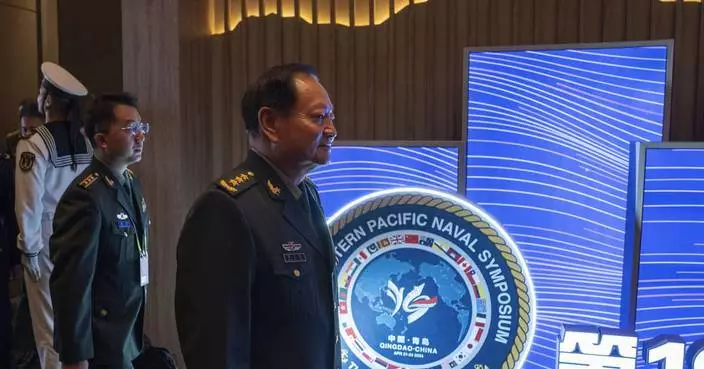President Donald Trump said Saturday he will pull the United States from the Intermediate-Range Nuclear Forces Treaty because Russia has violated the agreement, but provided no details on the violations.
The 1987 pact, which helps protect the security of the U.S. and its allies in Europe and the Far East, prohibits the United States and Russia from possessing, producing or test-flying a ground-launched cruise missile with a range of 300 to 3,400 miles.
"Russia has violated the agreement. They have been violating it for many years," Trump said after a rally in Elko, Nevada. "And we're not going to let them violate a nuclear agreement and go out and do weapons and we're not allowed to."
The agreement has constrained the U.S. from developing new weapons, but America will begin developing them unless Russia and China agree not to possess or develop the weapons, Trump said. China is not currently party to the pact.
"We'll have to develop those weapons, unless Russia comes to us and China comes to us and they all come to us and say let's really get smart and let's none of us develop those weapons, but if Russia's doing it and if China's doing it, and we're adhering to the agreement, that's unacceptable," he said.
National Security Adviser John Bolton was headed Saturday to Russia, Azerbaijan, Armenia and Georgia. His first stop is Moscow to meet with senior Russian officials at a time when Moscow-Washington relations remain frosty over the Ukrainian crisis, the war in Syria and allegations of Russian meddling in the 2016 presidential race and upcoming U.S. midterm elections.
U.S. officials have previously alleged that Russia violated the treaty by deliberately deploying a land-based cruise missile in order to pose a threat to NATO. Russia has claimed that U.S. missile defenses violate the pact.
In the past, the Obama administration worked to convince Moscow to respect the INF treaty but made little progress.
"If they get smart and if others get smart and they say let's not develop these horrible nuclear weapons, I would be extremely happy with that, but as long as somebody's violating the agreement, we're not going to be the only ones to adhere to it," Trump said.
TAIPEI, Taiwan (AP) — A $8 billion defense package approved by the U.S. House of Representatives over the weekend will “strengthen the deterrence against authoritarianism in the West Pacific ally chain,” Taiwan’s President-elect Lai Ching-te said Tuesday, in a reference to key rival China.
The funding will also “help ensure peace and stability across the Taiwan Strait and also boost confidence in the region” Lai, currently Taiwan’s vice president, told visiting Michigan Representatives Lisa McClain, a Republican, and Democrat Dan Kildee at a meeting at the Presidential Office Building in the capital Taipei.
In the face of “authoritarian expansionism,” Taiwan is “determined to safeguard democracy and also safeguard our homeland, Lai said.”
Also known as William Lai, U.S.-educated former medical researcher is despised by Beijing for his opposition to political unification with the mainland. In recent elections, the pro-unification Nationalists won a narrow majority in the legislature, but their influence on foreign policy and other national issues remains limited.
The Senate will vote Tuesday on $95 billion in war aid to Ukraine, Israel and Taiwan.
The package covers a wide range of parts and services aimed at maintaining and and upgrading Taiwan's military hardware. Separately, Taiwan has signed billions in contracts with the U.S. for latest-generation F-16V fighter jets, M1 Abrams main battle tanks and the HIMARS rocket system, which the U.S. has also supplied to Ukraine.
Taiwan has also been expanding its own defense industry, building submarines and trainer jets. Next month it plans to commission its third and fourth domestically designed and built stealth corvettes to counter the Chinese navy. as part of a strategy of asymmetrical warfare in which a smaller force counters its larger opponent by using cutting edge or nonconventional tactics and weaponry.
Lai, of the pro-independence ruling Democratic Progressive Party, won the January election handily and takes over next month from President Tsai Ing-wen, whom Beijing has sought to isolate for the past eight years.
China is determined to annex the island, which it considers its own territory, by force if necessary and has been advertising that threat with daily incursions into waters and air space around Taiwan by navy ships and warplanes. It has also sought to pick away Taiwan's few remaining formal diplomatic partners.
While Washington and Taipei have no formal diplomatic ties in deference to Beijing, McClain emphasized the need for the entire world to observe the strength of the relationship.
“Peace is our goal. But to do that, we have to have relationships and we value your relationship. Not only militarily, but economically,” she said.
Kildee said the timing of the visit was especially significant given the recent passage of the funding bill to “provide very important support to insure security in this region.”
"It’s important for the people of Taiwan, it’s important for the people in the United States, it’s important for the entire world,” Kildee said.
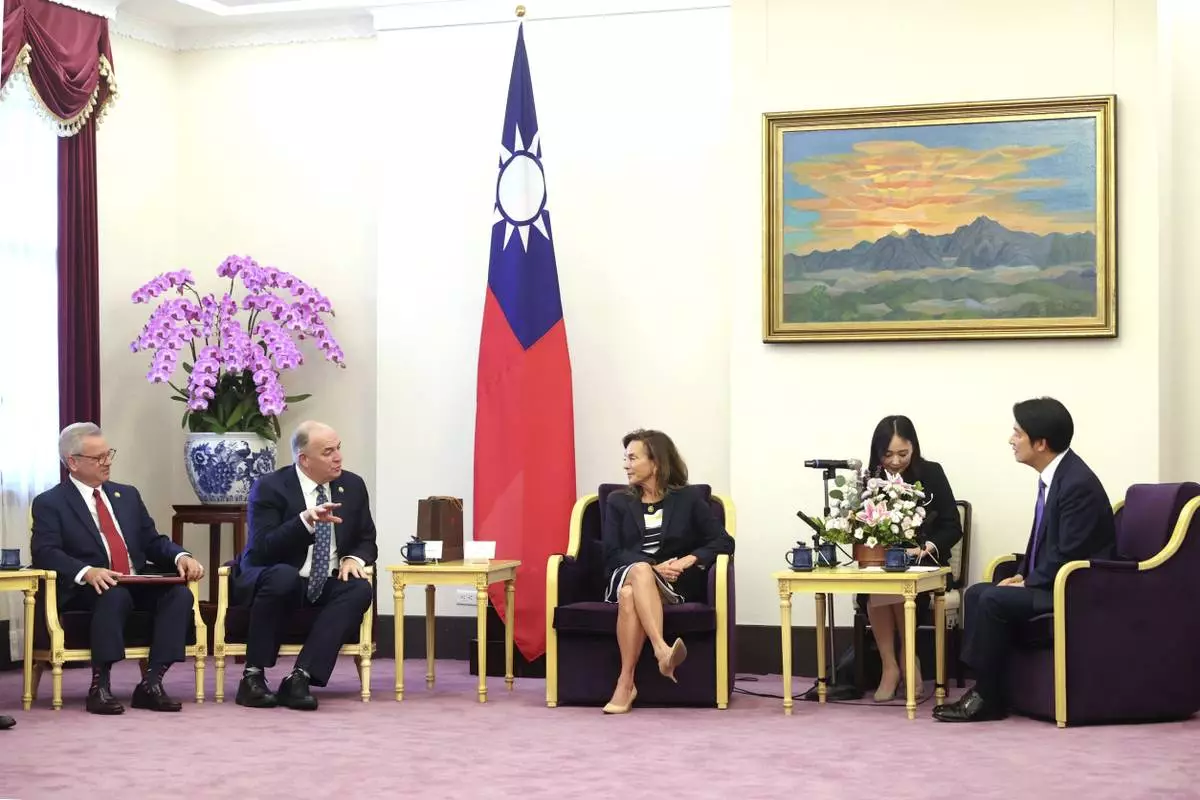
In this photo released by the Taiwan Presidential Office, from left Mark Alford, a member of the House Armed Services Committee, U.S. Democratic Congressman Dan Kildee, Lisa McClain, secretary-general of the Republican Caucus of the U.S. House of Representatives meets with Taiwan President-elect and Vice President Lai Ching-te in Taipei, Taiwan on Tuesday, April 23, 2024. McClain and Kildee jointly led a cross-party group of lawmakers to visit Taiwan from April 23 to 25 . Members also include Mark Alford, a member of the House Armed Services Committee. (Taiwan Presidential Office via AP)
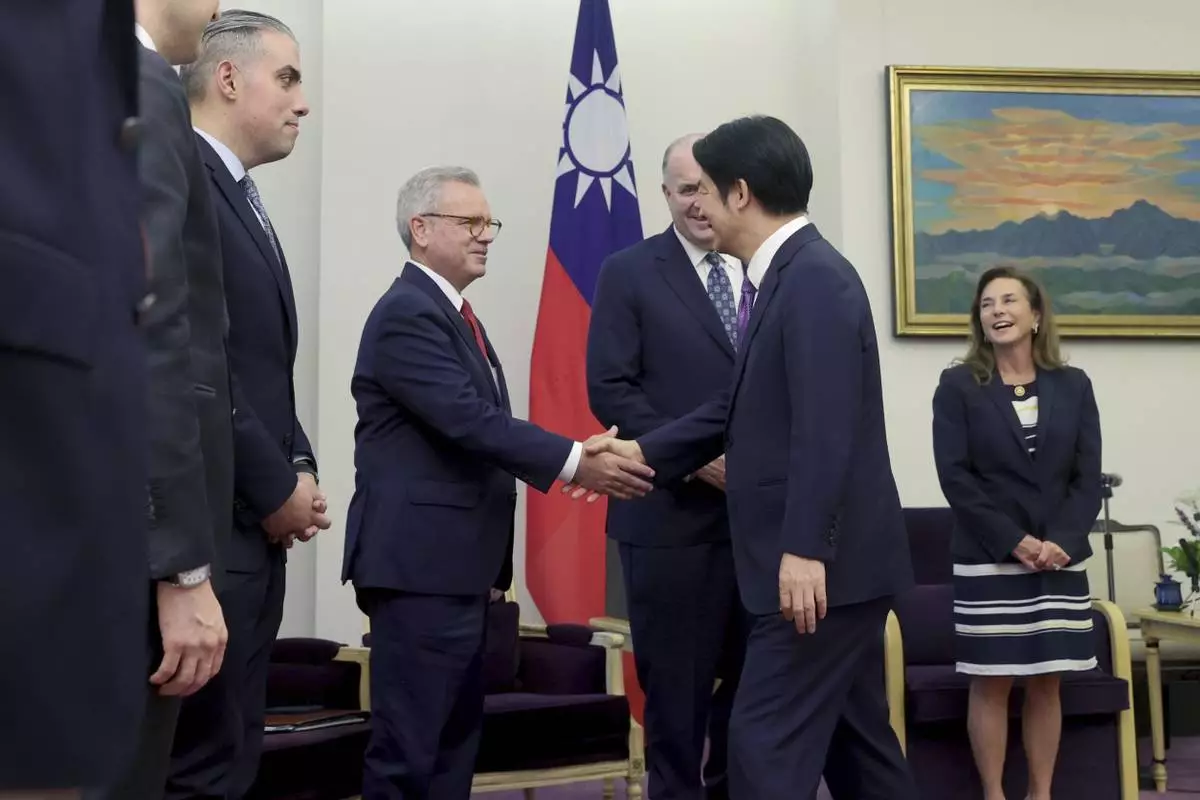
In this photo released by the Taiwan Presidential Office, Mark Alford, center left, a member of the House Armed Services Committee shakes hands with Taiwan President-elect and Vice President Lai Ching-te in Taipei, Taiwan on Tuesday, April 23, 2024. Lisa McClain, secretary-general of the Republican Caucus of the U.S. House of Representatives and Democratic Congressman Dan Kildee jointly led a cross-party group of lawmakers to visit Taiwan from April 23 to 25 . Members also include Mark Alford, a member of the House Armed Services Committee. (Taiwan Presidential Office via AP)
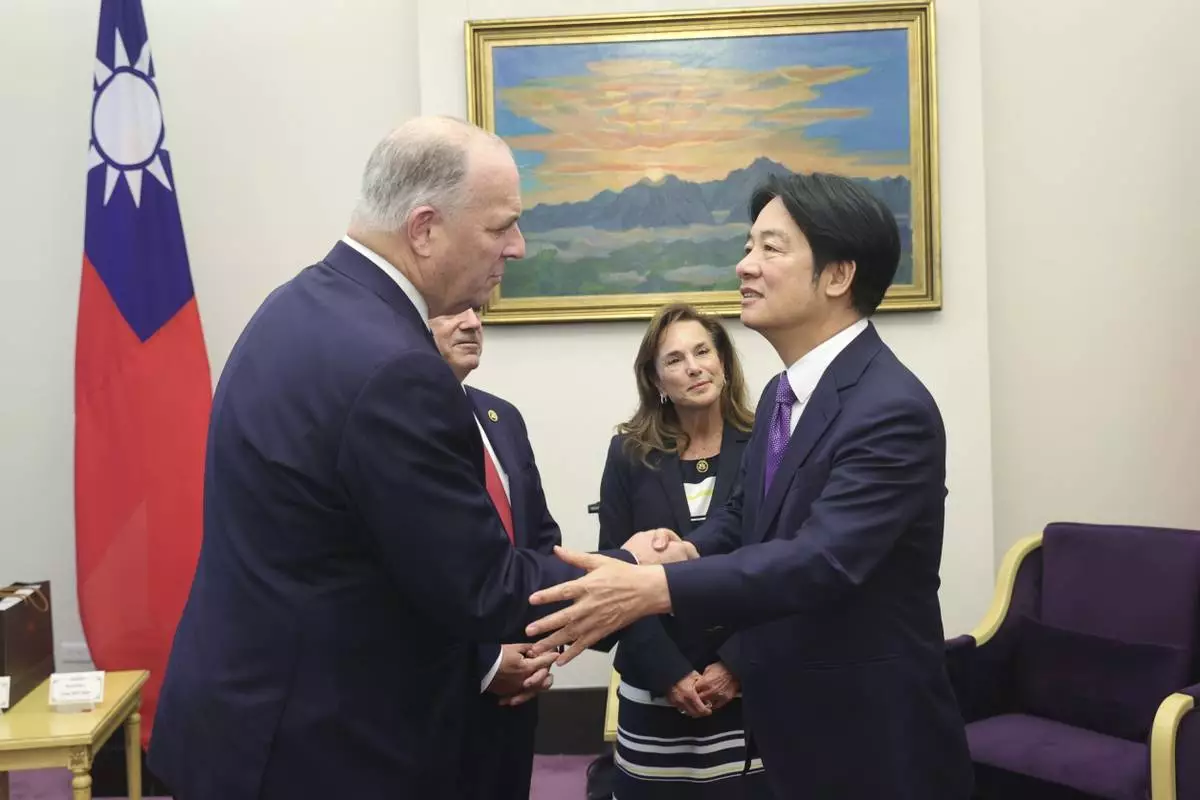
In this photo released by the Taiwan Presidential Office, U.S. Democratic Congressman Dan Kildee, left, meets with Taiwan President-elect and Vice President Lai Ching-te in Taipei, Taiwan on Tuesday, April 23, 2024. Kildee and Lisa McClain, secretary-general of the Republican Caucus of the U.S. House of Representatives jointly led a cross-party group of lawmakers to visit Taiwan from April 23 to 25 . Members also include Mark Alford, a member of the House Armed Services Committee. (Taiwan Presidential Office via AP)
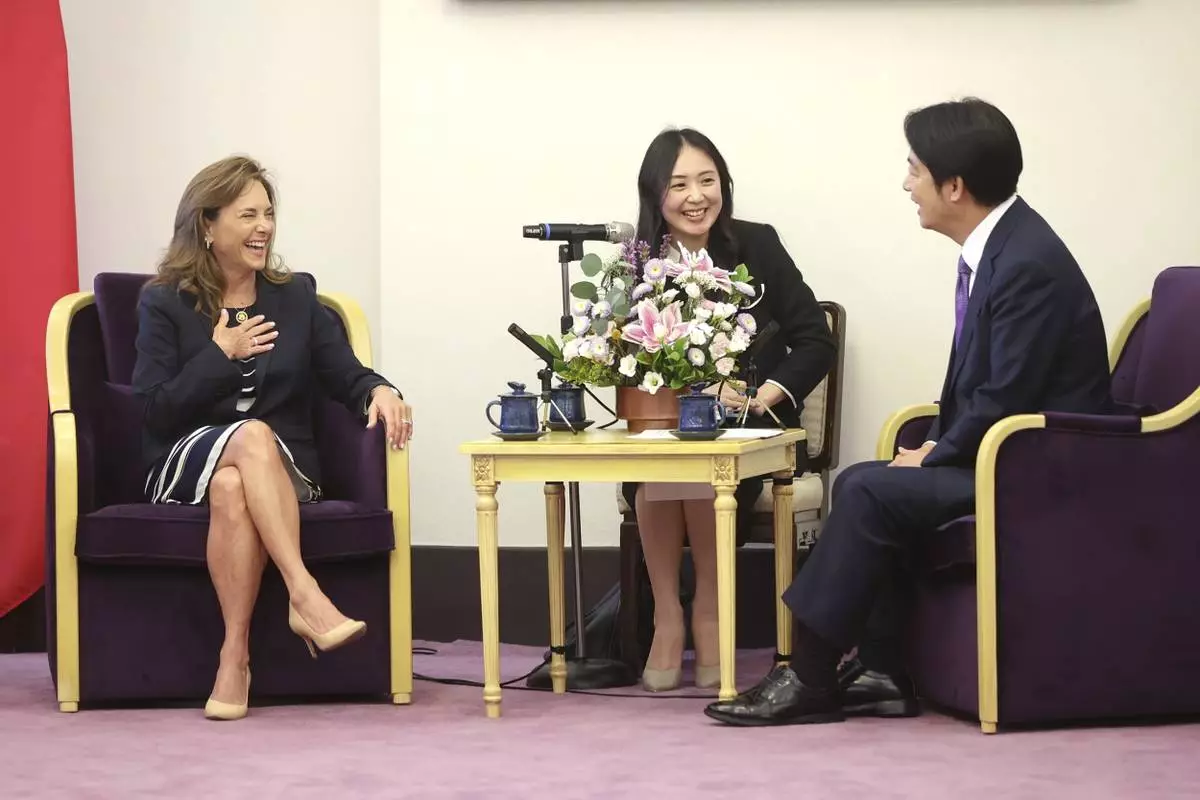
In this photo released by the Taiwan Presidential Office, Lisa McClain, left, secretary-general of the Republican Caucus of the U.S. House of Representatives meets with Taiwan President-elect and Vice President Lai Ching-te in Taipei, Taiwan on Tuesday, April 23, 2024. McClain and Democratic Congressman Dan Kildee jointly led a cross-party group of lawmakers to visit Taiwan from April 23 to 25 . Members also include Mark Alford, a member of the House Armed Services Committee. (Taiwan Presidential Office via AP)
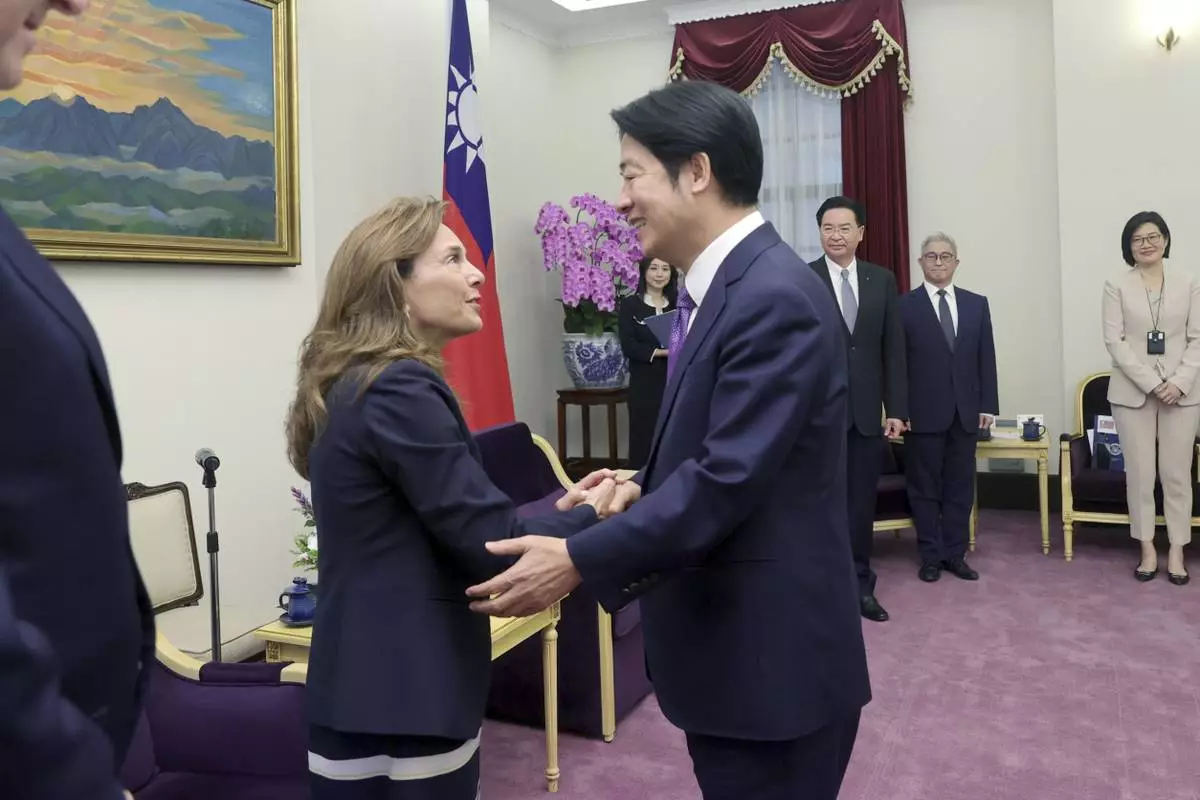
In this photo released by the Taiwan Presidential Office, Lisa McClain, left, secretary-general of the Republican Caucus of the U.S. House of Representatives meets with Taiwan President-elect and Vice President Lai Ching-te in Taipei, Taiwan on Tuesday, April 23, 2024. McClain and Democratic Congressman Dan Kildee jointly led a cross-party group of lawmakers to visit Taiwan from April 23 to 25 . Members also include Mark Alford, a member of the House Armed Services Committee. (Taiwan Presidential Office via AP)











